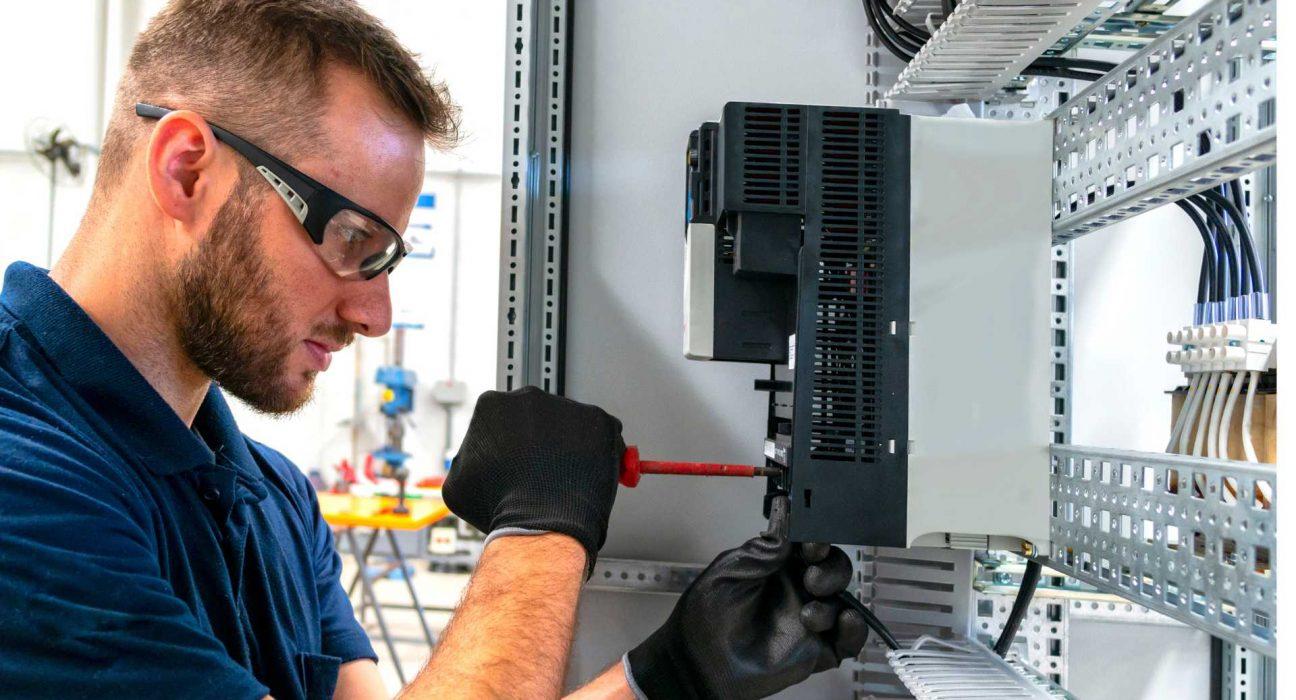Electricians play a vital role in maintaining and improving our homes and businesses. From simple wiring to complex installations, their expertise is indispensable.
In 2025, understanding the cost of hiring an electrician has become crucial for budgeting home improvements or resolving emergencies. With hourly rates ranging from £35 to £70, this blog will explore factors that influence these charges and provide tips on how to get the best value for your money.
Factors Affecting Electrician Hourly Rates

The cost of hiring an electrician can vary significantly due to several factors. Understanding these elements can help you better estimate expenses and select the right professional for your needs.
Experience and Qualifications
Electricians with extensive experience and advanced qualifications command higher hourly rates. For example:
- Apprentice Electricians: Typically charge lower rates, often around £20–£30/hour, as they are still gaining experience.
- Qualified Professionals: Fully certified electricians charge between £35–£70/hour, offering assurance of expertise.
- Specialist Electricians: Those trained in specific areas like renewable energy systems, EV charger installation, or industrial wiring may charge more due to their niche skills.
Hiring a more experienced electrician is often worth the investment, especially for complex or safety-critical projects, as it ensures high-quality and compliant work.
Location
Where you live plays a significant role in determining hourly rates for electricians:
- Urban Areas: Electricians in cities like London, Manchester, or Birmingham tend to charge higher rates due to the increased cost of living and higher demand for services. In London, rates often range from £50–£90/hour.
- Rural Areas: Rates in less populated areas are usually lower, falling between £25–£40/hour, as demand is typically lower, and travel distances may be shorter.
- Regional Variations: The North of England often has lower average rates compared to the South, reflecting regional economic disparities.
It’s also worth noting that electricians in high-demand areas may charge additional fees for travel, especially if the job site is outside their regular service radius.
Type of Project
The complexity and scope of the work significantly impact the cost of hiring an electrician:
- Simple Repairs: Tasks like replacing a light fixture or repairing a faulty outlet generally cost less, averaging £30–£50/hour.
- Medium Complexity Jobs: Rewiring a single room or installing additional sockets might fall in the range of £50–£70/hour, depending on the electrician’s experience.
- Complex Projects: Full house rewiring, installing underfloor heating systems, or integrating smart home technology can exceed £100/hour, especially if specialized skills are required.
Electricians may also quote fixed prices for larger projects, which can sometimes offer better value than hourly rates.
Emergency Services
Urgent or after-hours services usually come with a premium price:
- Call-Out Charges: Emergency electricians often charge a fixed call-out fee of £50–£100, on top of their hourly rates.
- Out-of-Hours Work: Jobs requiring evening, weekend, or holiday attention can see hourly rates increase by 50% or more. For instance, a standard rate of £50/hour might rise to £75–£100/hour for emergency or out-of-hours services.
- Priority for Urgent Issues: Electricians prioritize safety-critical tasks, such as fixing exposed wiring or restoring power, which might justify the higher rates.
Planning ahead for non-urgent work can save costs, but having access to a reliable electrician for emergencies is invaluable.
What is Included in an Electrician’s Hourly Rate?

When planning for electrical work, understanding what an electrician’s hourly rate covers is crucial to avoid unexpected costs and ensure transparent budgeting. Here’s a breakdown of what is typically included in an electrician’s hourly rate and what might be excluded:
Labour Costs
The majority of an electrician’s hourly rate goes toward covering their labour costs. This includes:
- The time spent diagnosing, repairing, or installing electrical systems.
- The electrician’s expertise and skill, honed through training and experience.
- The complexity of the task, as more technical jobs often require specialized knowledge.
The labour cost reflects not only the actual work done but also the assurance of quality and compliance with safety standards.
Travel Expenses
Electricians often include travel expenses in their hourly rates, particularly if they need to travel a significant distance to reach your location. This covers:
- The cost of fuel and vehicle maintenance.
- The time spent traveling to and from your property.
For remote locations or emergency call-outs, these expenses might be higher. It’s a good idea to ask your electrician if travel costs are included in their rate or charged separately.
Standard Tools and Equipment
Electricians bring a range of tools and equipment necessary to complete the job. These are generally included in their hourly rate, such as:
- Basic tools like screwdrivers, pliers, and wire cutters.
- Testing equipment to ensure electrical systems are functioning correctly.
However, if the job requires specialized or advanced equipment, such as thermal imaging cameras or heavy-duty machinery, there may be additional charges. Always discuss this in advance if you suspect your project might require such tools.
Exclusions: VAT and Materials
While the hourly rate typically includes labour and basic tools, there are certain expenses that are often excluded:
- VAT (Value Added Tax): Some electricians may quote their rates excluding VAT, so it’s important to confirm whether this tax will be added to the final bill.
- Materials and Supplies: If the job requires new components, such as wires, sockets, switches, or light fixtures, the cost of these materials is usually added separately.
Importance of Clarification
To avoid surprises, always clarify with your electrician what their hourly rate covers. Ask for a detailed quote that specifies:
- Whether travel expenses are included.
- Any additional charges for specialized tools or advanced equipment.
- The cost of materials and whether VAT will be applied.
Average Electrician Hourly Rates in 2025

The hourly rates for electricians in 2025 vary depending on the factors mentioned:
| Type of Electrician | Hourly Rate (excluding VAT) |
| Domestic Electricians | £35 – £70 |
| Commercial Electricians | £50 – £90 |
| Apprentice Electricians | £20 – £30 |
| Emergency Call-Out Electricians | £80 – £150 |
Comparison of Domestic vs. Commercial Electrician Rates
Domestic electricians handle tasks like rewiring homes or installing light fixtures, while commercial electricians focus on larger-scale projects for offices or industrial spaces.
- Domestic Rates: Usually range between £35 and £70/hour, ideal for household tasks.
- Commercial Rates: Start from £50/hour, reflecting the complexity and scope of their work.
Day Rates vs. Hourly Rates
Some electricians charge daily rates instead of hourly ones, especially for larger projects.
- Typical Day Rates: Range from £250 to £400/day.
- Ideal for Projects Like: Full house rewiring or installing electrical panels.
Emergency Electrician Rates in the UK

Emergencies like power outages or faulty wiring often require immediate attention. Rates for emergency electricians are higher:
- Standard Emergency Call-Out: From £80 to £150/hour.
- Out-of-Hours Charges: Rates for evenings, weekends, or holidays may rise by 50% or more.
How to Avoid Hidden Charges When Hiring an Electrician?
Hidden costs can inflate your bill unexpectedly. Here’s how to avoid them:
- Request Detailed Quotes: Ensure the estimate includes labour, materials, and VAT.
- Understand Minimum Project Fees: Many electricians have a minimum charge, often equivalent to 1–2 hours of work.
- Ask About Travel Costs: Especially if the electrician is based far away.
Common Additional Costs
Beyond the hourly rate, you may encounter:
- Call-Out Charges: Ranging from £50 to £100 for quick assessments.
- Materials: Wires, sockets, or light fixtures may cost extra.
- Testing and Certification: Necessary for ensuring safety compliance, often an additional charge.
Tips for Reducing Electrician Costs
Bundle Tasks
When you need electrical work done, try to compile a list of tasks that require attention. Combining multiple small jobs into a single visit can reduce the cost since you’ll only pay for one call-out fee.
For example, if you need a light fixture replaced and a socket repaired, have them done together during one appointment.
Schedule Non-Emergency Work
Emergency or out-of-hours electrician services often come with premium charges. If the work isn’t urgent, schedule it during regular working hours to avoid these extra fees. Planning ahead can significantly cut down costs.
Get Multiple Quotes
Always obtain quotes from at least three electricians to compare their pricing and services.
This will help you identify a fair price for the job and ensure you’re not overpaying. Make sure to check reviews and credentials to balance cost with quality.
By following these tips, you can manage your electrical expenses effectively while ensuring quality service
How to Get the Best Value from an Electrician?
 Compare Quotes
Compare Quotes
To ensure you’re getting the best deal, gather quotes from several electricians. Platforms like Checkatrade or TrustATrader provide reliable reviews and ratings that can help you identify reputable professionals.
Comparing costs alongside customer feedback ensures you find a balance between quality and affordability.
Verify Certifications
Always check that the electrician is properly certified and registered with reputable organisations such as NICEIC (National Inspection Council for Electrical Installation Contracting) or similar bodies.
These certifications indicate that the electrician meets industry standards and follows safety regulations, giving you peace of mind about their qualifications.
Discuss Project Scope
Before work begins, have a detailed discussion with your electrician about the scope of the project. Clearly outline what needs to be done, the materials required, and any potential challenges.
This clear communication helps prevent misunderstandings and avoids unexpected costs or delays during the job.
By following these steps, you can ensure quality workmanship, avoid hidden fees, and get the best value for your money.
Are Electrician Hourly Rates Expected to Rise Beyond 2025?

As we look toward the future, several factors suggest that electrician hourly rates may continue to rise beyond 2025. These key elements could drive the trend:
Inflation
Inflation plays a significant role in increasing service costs, including electrical work. As the prices of raw materials, tools, and equipment continue to rise, electricians often pass on these increased costs to consumers.
With the global economy experiencing inflationary pressures, material costs—such as copper, wiring, and electrical components—are expected to remain high, which in turn may drive up hourly rates for electricians.
Demand for Skilled Labor
The demand for electricians is expected to increase as more individuals and businesses adopt energy-efficient systems and renewable energy technologies.
As countries push for greener energy solutions, there will be greater demand for skilled electricians to install solar panels, energy-efficient lighting, and other sustainable energy systems.
This growing need for qualified professionals could lead to higher rates as electricians’ expertise becomes more valuable and in demand.
Training and Certification Costs
To meet the increasing demand for specialized electrical services, electricians may need to invest more in their education, certifications, and ongoing training.
The cost of obtaining and maintaining these credentials, as well as the time required to keep up with the latest industry trends and safety regulations, could further contribute to higher hourly rates.
Labor Shortages
In many regions, there is already a shortage of skilled tradespeople, including electricians. This shortage is expected to persist, if not worsen, as older electricians retire and fewer young workers enter the trade.
This labor shortage could drive up wages as electricians are in high demand, and businesses may need to offer higher pay to attract and retain skilled workers.
Conclusion
Understanding the average electrician hourly rate in 2025 helps you plan and budget effectively. Whether for a minor repair or a major installation, knowing what to expect ensures you get quality service at a fair price.
Always compare quotes, check certifications, and factor in additional costs to make an informed decision.
FAQ
What’s the lowest hourly rate for electricians in the UK?
The lowest rates are typically around £20–£25/hour, often charged by apprentice electricians.
Are emergency electrician rates higher?
Yes, emergency rates can reach £80–£150/hour, especially for out-of-hours services.
Do electricians charge VAT on hourly rates?
Many electricians include VAT at 20%, so confirm this when obtaining quotes.
How much do London electricians charge compared to the UK average?
Electricians in London often charge £50–£90/hour, reflecting the higher cost of living.
What certifications should I look for when hiring an electrician?
Look for NICEIC registration or similar certifications to ensure reliability and safety compliance.
Can electricians give fixed prices instead of hourly rates?
Yes, many electricians offer fixed quotes for well-defined projects.
Are there discounts for larger projects?
Some electricians may offer discounts for bulk work or extended contracts.










Leave feedback about this